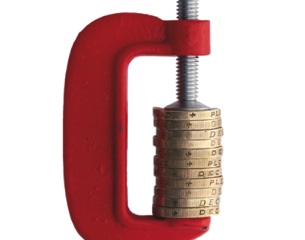The government’s pension charges cap could push up currently low charges where these are available for employees in workplace pension schemes.
Some scheme members currently benefit from annual management charges (AMCs) well below the 0.75% cap that will be imposed on auto-enrolment workplace schemes from April 2015.

Marcus Fink, a partner at law firm Ashurst, said: “The 0.75% cap is a safe figure. I think it possibly could have come down lower, but not by much.”
Towers Watson’s FTSE 350 DC pension survey 2014, published in April, found that the average AMC for FTSE 350 pension plans is 0.41%.
Alan Morahan, head of defined contribution consulting at Punter Southall, said: “The market may shift and new scheme terms will be benchmarked against the higher level of 0.75%.
“I am concerned that it could actually result in an increase in charges in newly established schemes. The market is operating with a 0.5% cap in mind.
“With the cap in place, employers might be satisfied with a charge if it is at, or just below, the 0.75%, without applying pressure to get closer to the 0.5% level.”
Three categories of pension charge are being banned altogether: sales commissions that are deducted from members’ pensions; charge hikes when individuals leave an organisation but leave money in its pension scheme; and consultancy charges, whereby members pay for pension advice given to their employer.
There are fears that the charges cap could also stifle innovation and creativity in some aspects of pension scheme design that could lead to better retirement outcomes for employees.
Claire van Rees, associate director at law firm Sackers, said: “The cap may discourage innovation in default options. Some schemes have been developing more sophisticated default options with higher charges in the genuine belief that they will deliver a better outcome for members in the long run. The charges cap is a shame for schemes like these.”
The government is also considering whether transaction costs should be included in the cap, and whether the charge cap should be lowered in 2017.
Rees added: “The worry is that as charges get squeezed too far, then default funds will have to be very basic and, although the charges may be low, it will not necessarily give people the best outcome.”